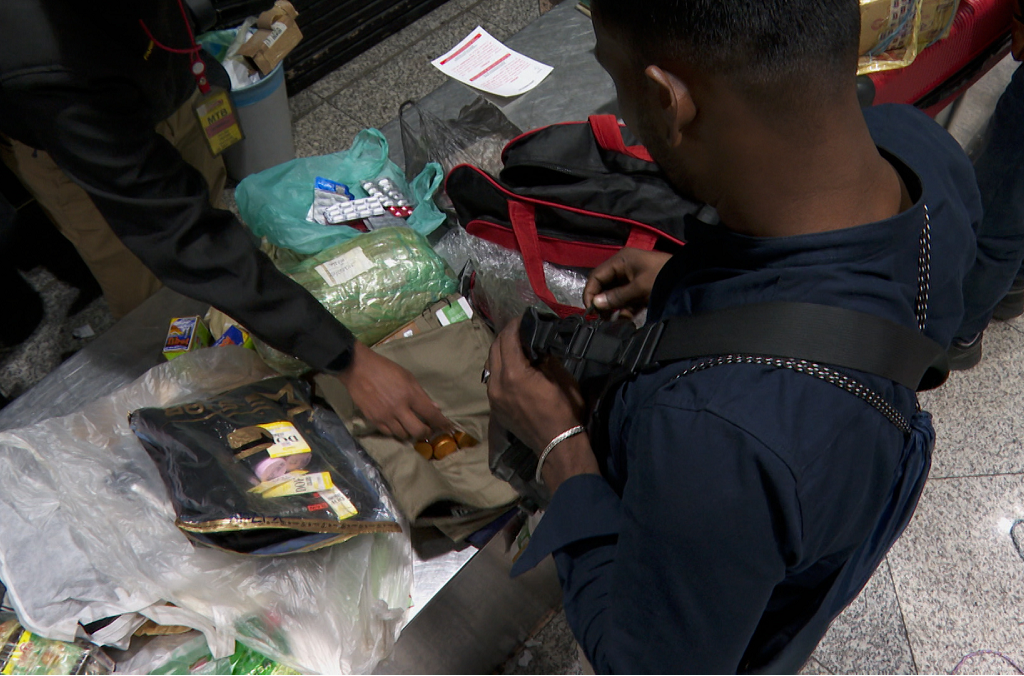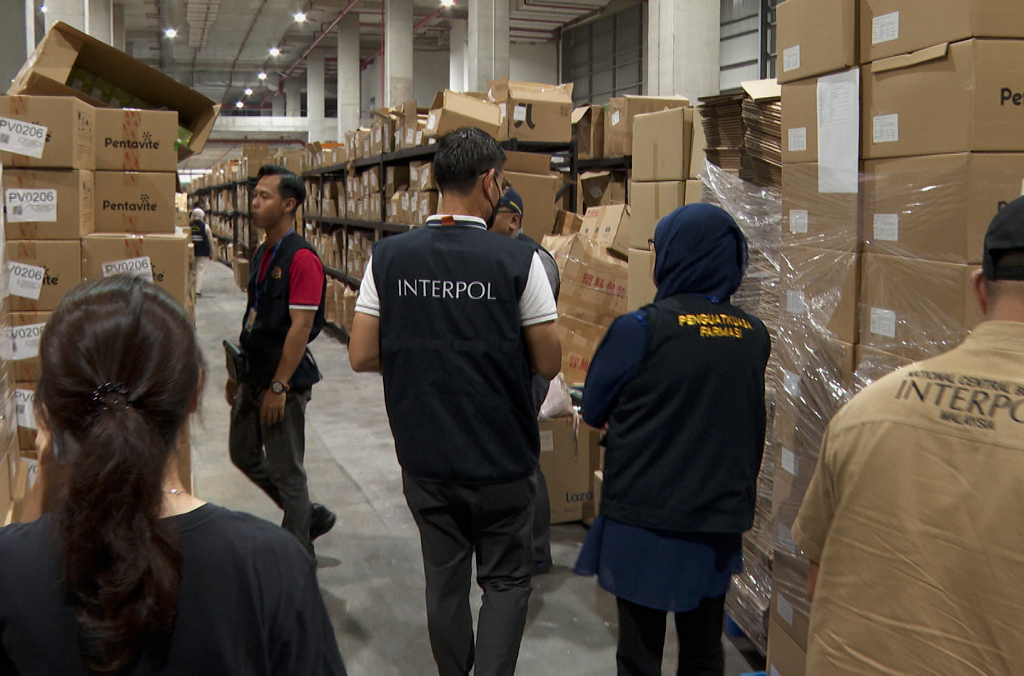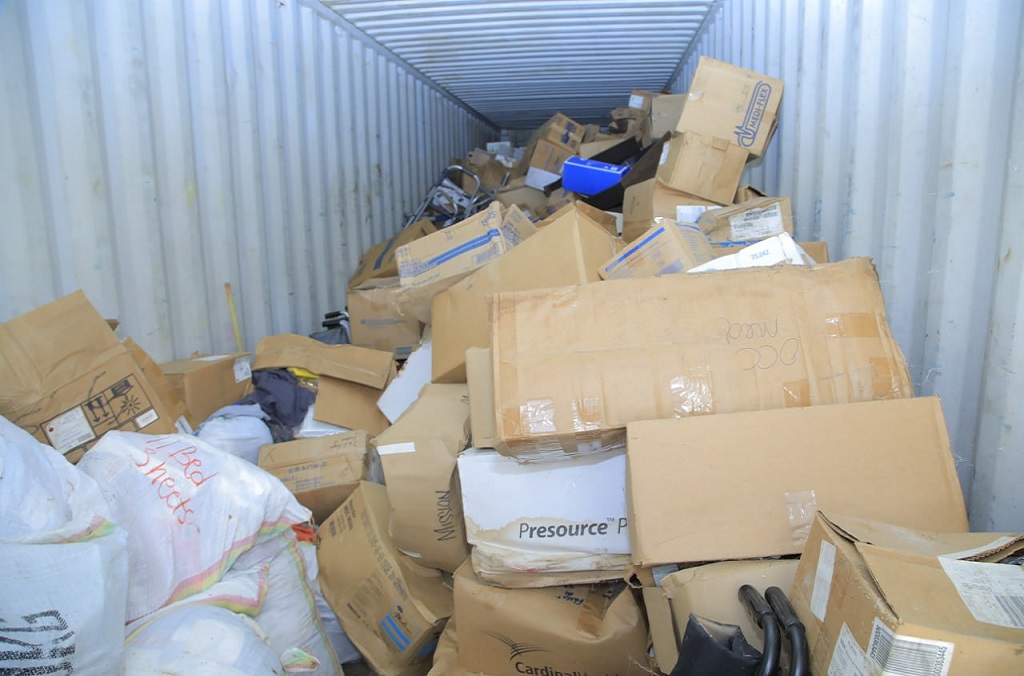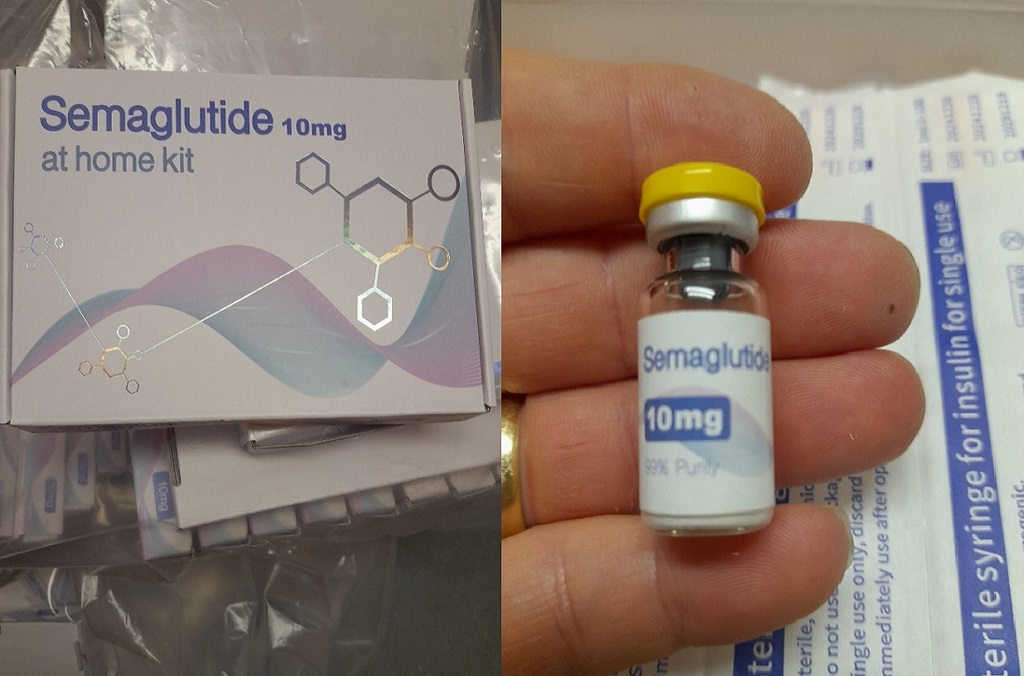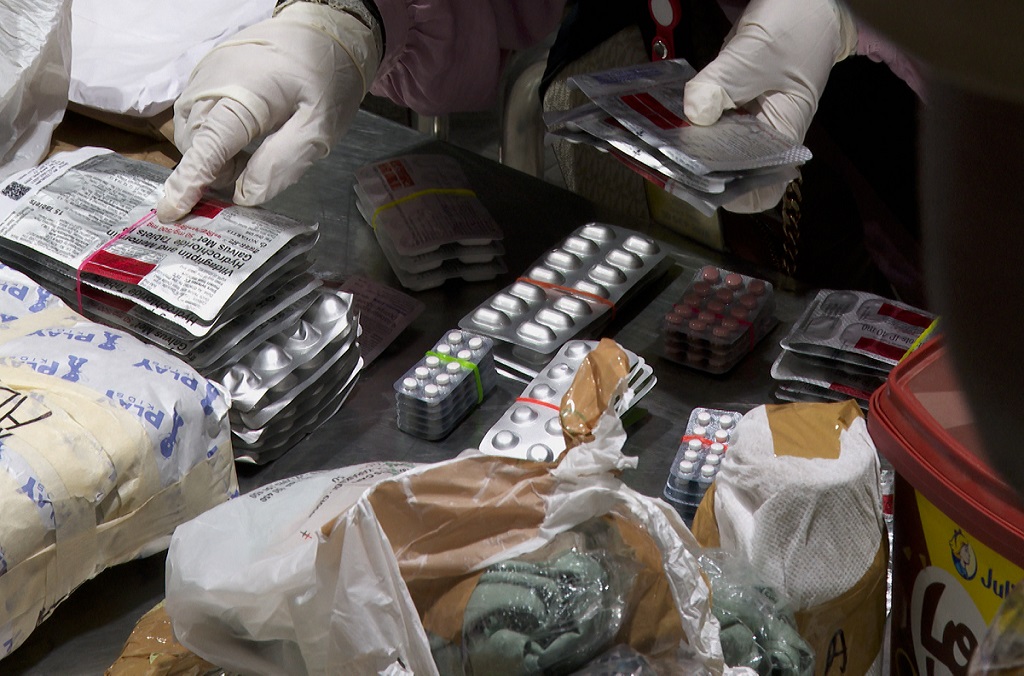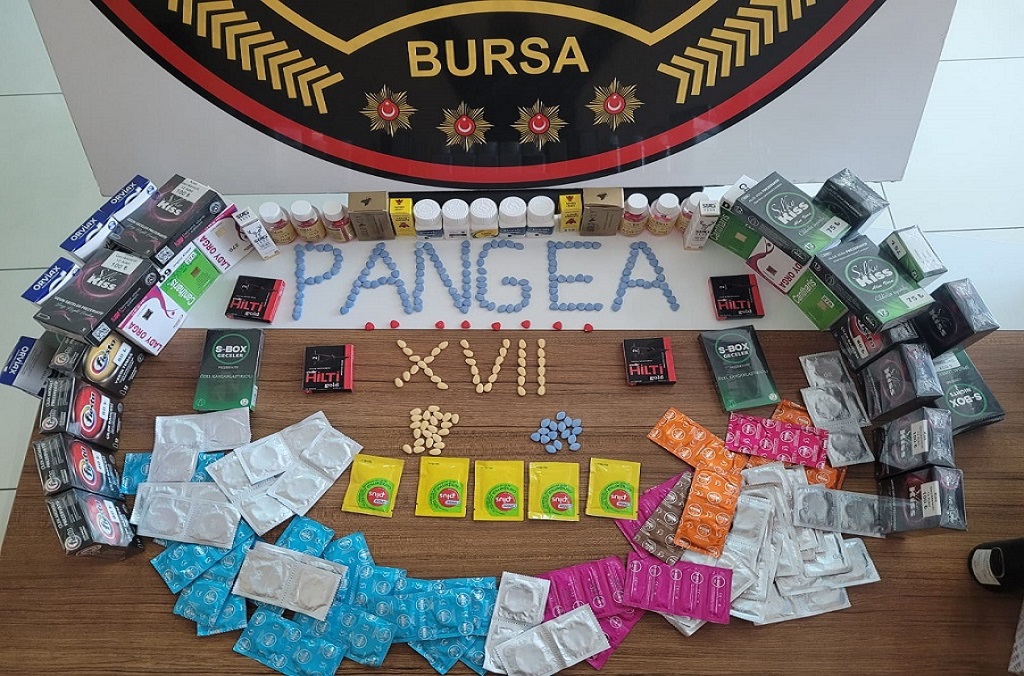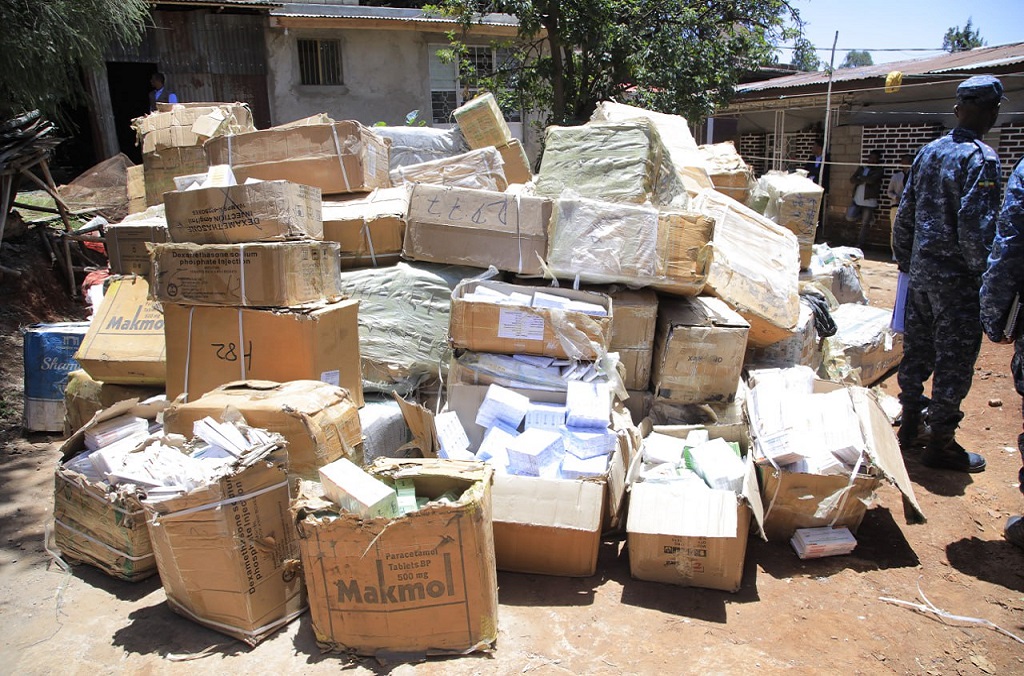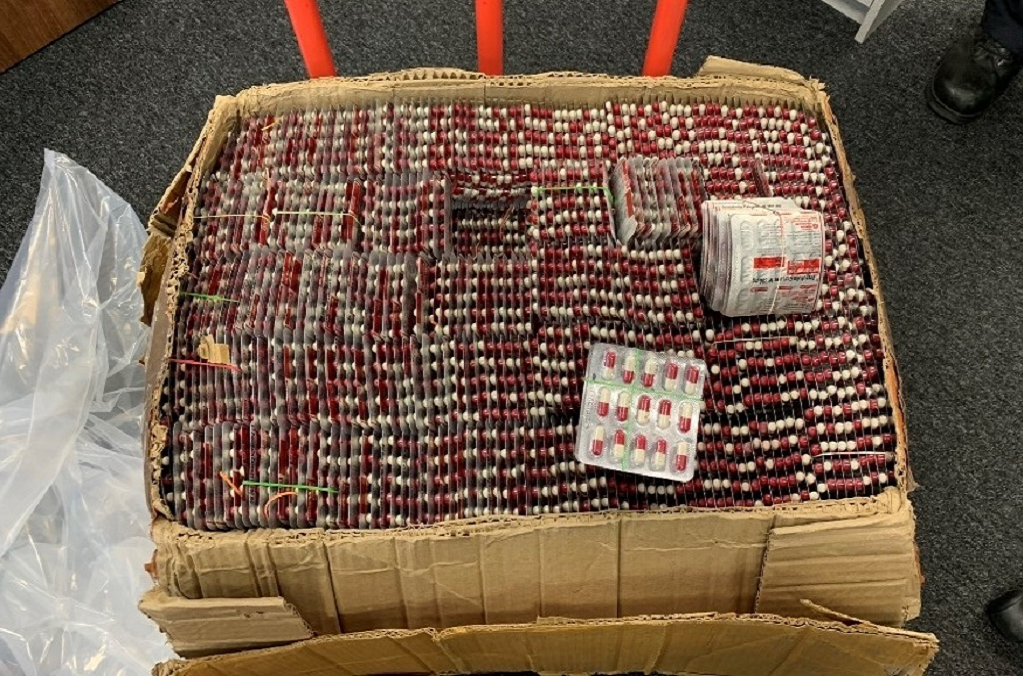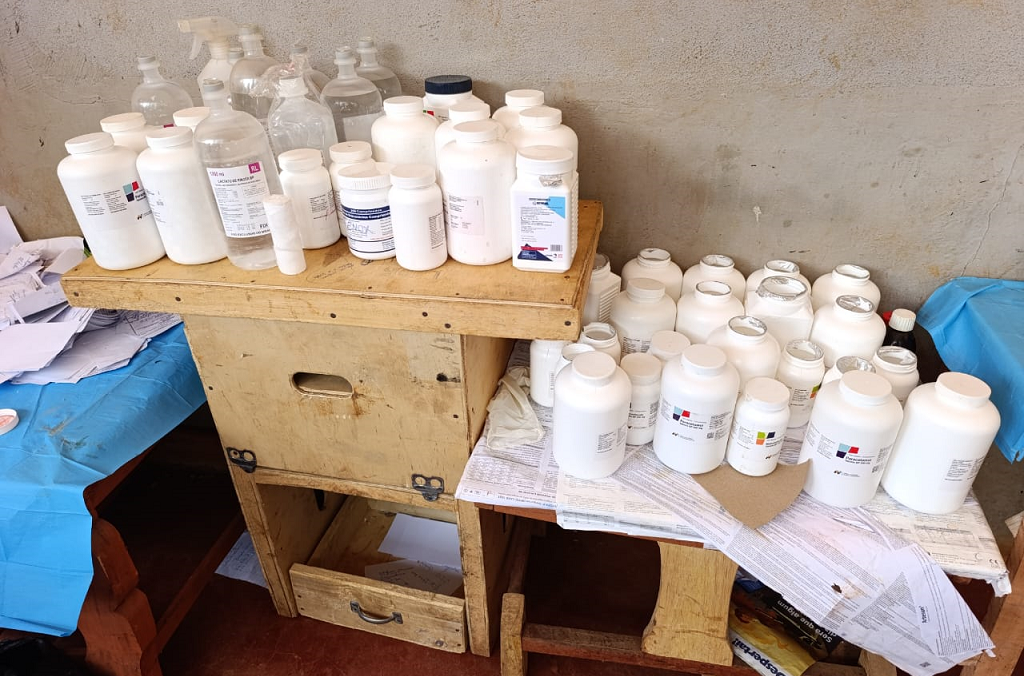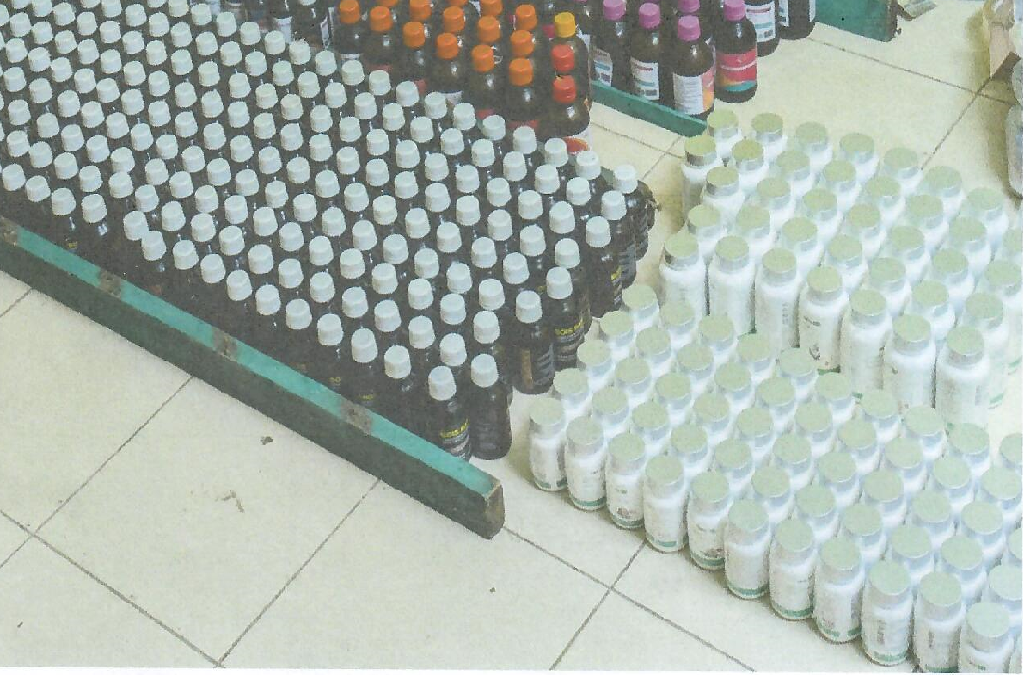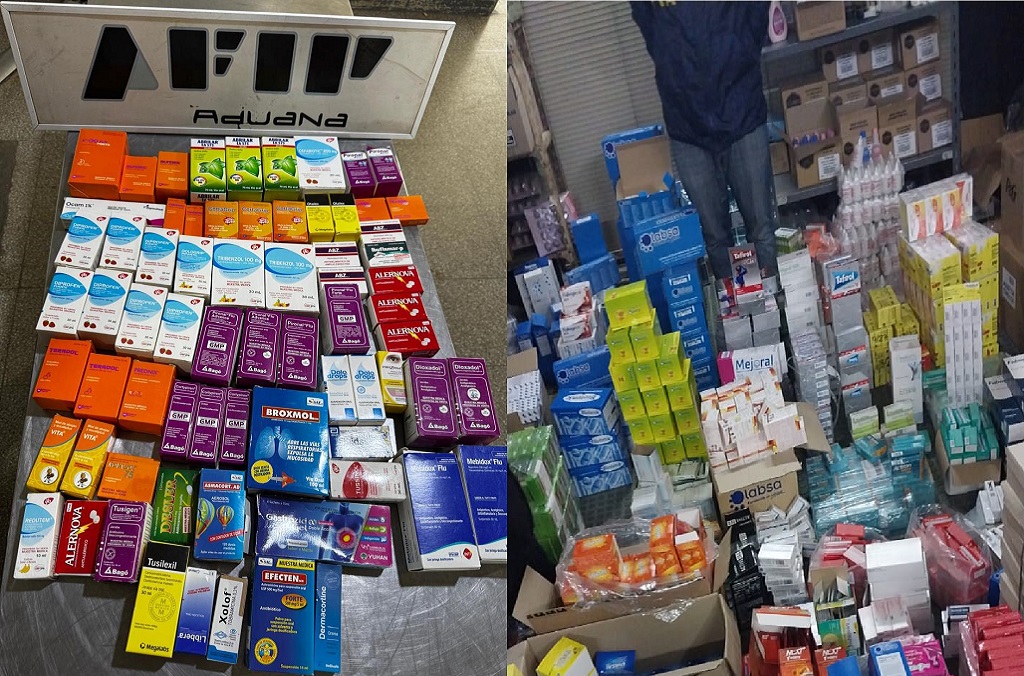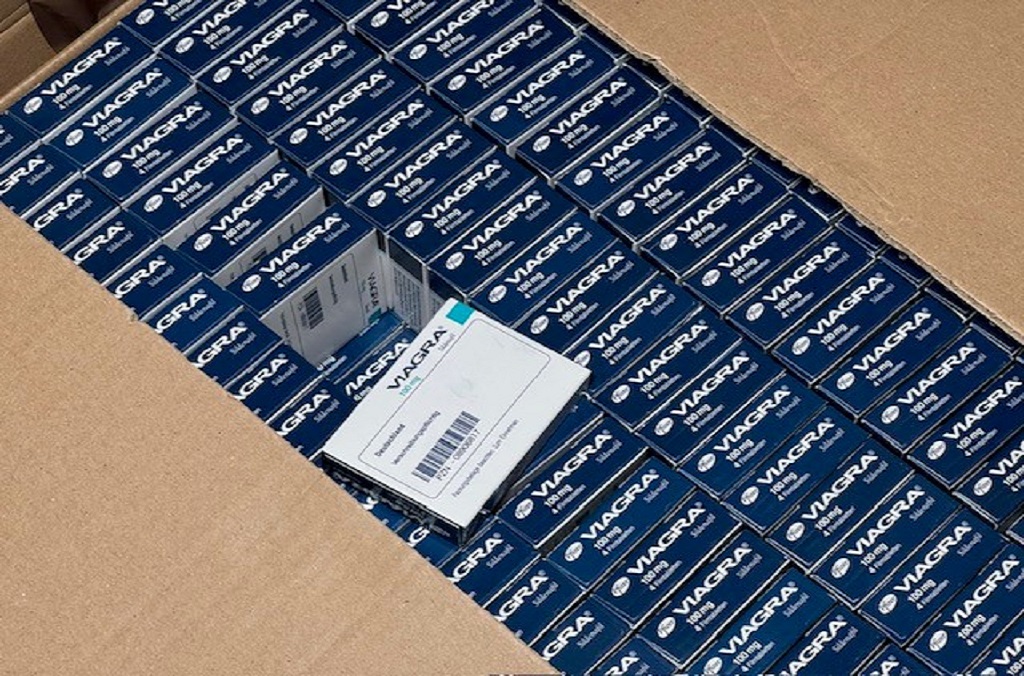SINGAPUR – Una operación coordinada por INTERPOL en 90 países se ha saldado con la incautación de 50,4 millones de dosis de fármacos ilícitos por valor de 65 millones de dólares estadounidenses, lo que muestra la preocupante magnitud del comercio de medicamentos no autorizados y falsificados a escala mundial.
La operación Pangea XVII, que tuvo lugar de diciembre de 2024 a mayo de 2025, permitió la detención de 769 sospechosos y el desmantelamiento de 123 grupos delictivos en todo el mundo.
Esta es la edición que mejores resultados ha logrado en términos de incautaciones y detenciones en los 17 años de historia de la operación.
El tipo de producto más incautado fueron los medicamentos para el sistema nervioso, que incluyen psicoestimulantes, ansiolíticos y fármacos para la enfermedad de Parkinson, seguido por los tratamientos para la disfunción eréctil.
También se incautaron otros productos habituales en estos casos, como son los esteroides anabolizantes, medicamentos contra la diabetes, artículos para dejar de fumar, productos dermatológicos, complementos alimenticios, sustancias a base de plantas y fármacos psicoterapéuticos.
David Caunter, director (en funciones) de Delincuencia Organizada y Nuevas Tendencias Delictivas, declaró:
«Las medicinas falsificadas y no autorizadas representan un peligro para la salud de los ciudadanos. Pueden contener ingredientes peligrosos o ilegales, lo que podría provocar enfermedades graves o incluso la muerte».
«El rápido crecimiento de las plataformas en línea ha facilitado la exposición a estas drogas peligrosas y ha proporcionado nuevas oportunidades que las redes delictivas aprovechan».
«Los países, al trabajar juntos en la operación Pangea, están actuando para proteger la salud de los ciudadanos y la seguridad de los sistemas de salud».
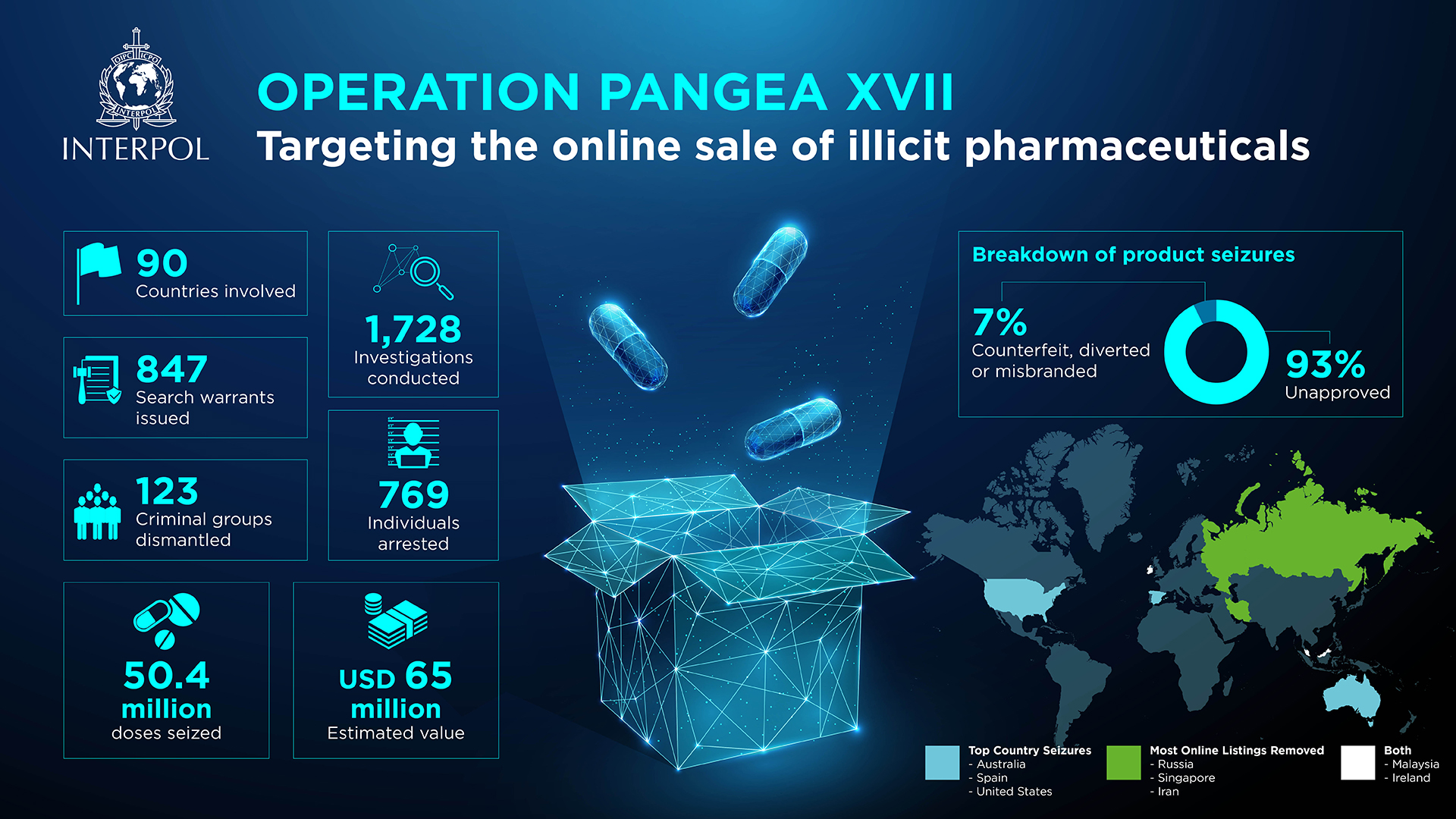
Aumento de la demanda de medicamentos contra la diabetes y de complementos alimenticios a base de péptidos
La operación reveló el crecimiento de la demanda de medicamentos contra la diabetes y de complementos alimenticios a base de péptidos, lo que se ha visto impulsado, entre otros factores, por la tendencia a la automedicación, que es cada vez mayor.
Esta propensión se potencia, a su vez, por la promoción y la disponibilidad generalizadas de estos fármacos en los medios sociales y mercados en línea, lo que ofrece a las redes delictivas nuevas oportunidades lucrativas y relativamente seguras de vender productos falsificados o de baja calidad.
Los datos proporcionados por los países participantes indican que la distribución de fármacos ilícitos contra la diabetes, que favorecen la pérdida de peso, está aumentando a escala mundial, y que se han incautado sustancias no autorizadas y posiblemente falsificadas de este tipo en Asia y el Pacífico, Europa y Norteamérica.
Según las estimaciones, cada pluma de semaglutida puede costar cientos de dólares estadounidenses en el mercado negro.
Los decomisos confirman las alertas lanzadas recientemente por la Organización Mundial de la Salud y distintas autoridades nacionales reguladoras en materia de salud pública para avisar de los riesgos emergentes asociados con los fármacos GLP-1 inyectables.
La operación Pangea XVII permitió descubrir otra tendencia nueva: la demanda cada vez mayor, principalmente en países con altos ingresos de Europa, Norteamérica y Oceanía, de complementos alimenticios a base de péptidos, por la utilidad que se les atribuye en materia de cosmética y de mejora del rendimiento.
Estos complementos, como el BPC-157, el Ipamorelin y el Melanotan, aún no han sido autorizados en muchas regiones debido a los posibles riesgos para la salud y la falta de ensayos clínicos suficientes, por lo que hasta ahora eran poco habituales las incautaciones de este tipo de sustancias biológicas activas a base de péptidos.
Aspectos destacados de la operación
A escala mundial, los organismos encargados de la aplicación de la ley iniciaron en total 1 728 investigaciones y emitieron 847 órdenes de registro contra redes delictivas dedicadas a la distribución ilícita de sustancias farmacéuticas.
El 93 % de los fármacos ilegales incautados no disponía de la autorización de los organismos nacionales de salud pública.
Esos productos pueden contener sustancias falsificadas o de calidad inferior que no han sido identificadas.
Se ha confirmado que el 7 % restante se corresponde con productos falsificados, desviados o etiquetados incorrectamente.
Las mayores incautaciones mundiales tuvieron lugar en Australia, donde la categoría más decomisada fueron los psicoestimulantes, tales como el modafinilo y el armodafinilo, seguida por los parches para dejar de fumar y las medicinas para tratar la disfunción eréctil.
En palabras del catedrático Tony Lawler, máximo responsable del organismo australiano dedicado a la administración de productos terapéuticos (TGA):
«Durante la operación, la TGA examinó más de 9 500 importaciones detectadas por el servicio de aduanas australiano y facilitó la incautación de más de 5,2 millones de unidades de productos terapéuticos importados ilegalmente, entre los que había artículos que, según se ha demostrado, no respetaban los estándares de calidad o habían sido falsificados».
«Esta alianza operativa ha conseguido desbaratar en gran medida las actividades relacionadas con los fármacos peligrosos y evitar que alcancen a nuestros ciudadanos, y que los ingresos derivados de la venta y la distribución ilegal de dichas sustancias lleguen a manos de aquellos que normalmente se benefician de estas actividades».
Entre otros países, Canadá, España, Estados Unidos, Irlanda, Malasia, Países Bajos, Portugal, Suecia y Reino Unido también han informado de incautaciones importantes de fármacos ilícitos.
La operación Pangea XVII permitió asimismo el cierre de aproximadamente 13 000 sitios web, páginas de medios sociales, canales y bots delictivos destinados a la comercialización y la venta de medicamentos ilegales o falsificados.
Malasia fue el país que más anuncios eliminó (7 000 anuncios), seguido por Rusia, Irlanda, Singapur e Irán. Los cinco países juntos desmantelaron el 96 % de todas las ofertas.
En Burkina Faso se descubrieron, ocultos en vehículos, 816 000 comprimidos, entre los que había analgésicos y antiinflamatorios.
En México, las fuerzas del orden interceptaron 27 000 pastillas de clonazepam y 20 000 de alprazolam que transitaban por unas instalaciones de Correos en Tijuana.
Notas para los editores
La operación Pangea es un operativo anual de INTERPOL para la lucha contra la venta de fármacos ilícitos a través de Internet. La 17ª edición se diferenció de las anteriores por su duración, puesto que las actuaciones de las fuerzas del orden tuvieron lugar a lo largo de más de seis meses, cuando tradicionalmente habían durado una semana, lo que permitió una labor más completa y duradera para combatir las redes criminales.
Se contó además con el respaldo de las autoridades reguladoras nacionales en materia de salud pública, Europol, la Junta Internacional de Fiscalización de Estupefacientes, el Instituto de Seguridad Farmacéutica, la Alianza Transnacional para Combatir el Comercio Ilícito, la Oficina de las Naciones Unidas contra la Droga y el Delito, la Unión Postal Universal, la Organización Mundial de Aduanas y la Organización Mundial de la Salud.
Países participantes en la operación Pangea XVII: Argentina, Armenia, Australia, Austria, Azerbaiyán, Bahréin, Belarús, Benín, Bolivia, Bosnia y Herzegovina, Botsuana, Brasil, Brunéi, Bulgaria, Burkina Faso, Camboya, Camerún, Canadá, Catar, Chile, China, Chipre, Colombia, Comoras, Congo, Costa Rica, Curazao, Dinamarca, Ecuador, Eslovaquia, España, Estados Unidos, Etiopía, Filipinas, Finlandia, Francia, Gabón, Georgia, Grecia, Guyana, Hong Kong (China), India, Indonesia, Irán, Irak, Irlanda, Irlanda del Norte (Reino Unido), Jamaica, Kuwait, Laos, Letonia, Líbano, Madagascar, Malasia, Maldivas, Marruecos, México, Mozambique, Myanmar, Níger, Nigeria, Noruega, Nueva Zelanda, Países Bajos, Pakistán, Palestina, Paraguay, Perú, Polonia, Portugal, Reino Unido, República Checa, República Democrática del Congo, República Dominicana, Rumania, Rusia, Ruanda, San Marino, Santa Lucía, Senegal, Serbia, Singapur, Sri Lanka, Sudáfrica, Suecia, Tailandia, Togo, Türkiye, Ucrania, Uruguay, Venezuela y Zimbabue.




